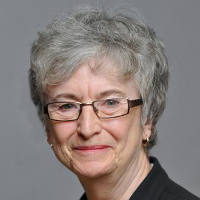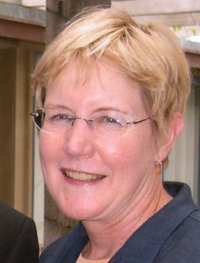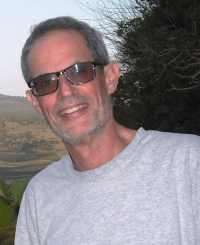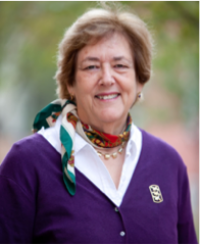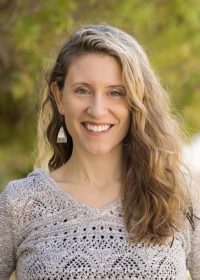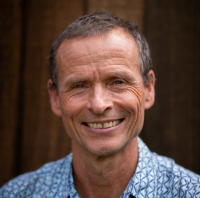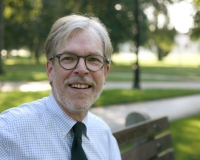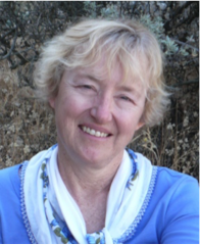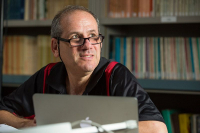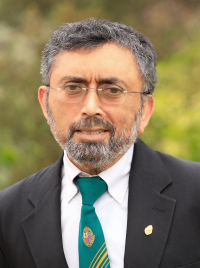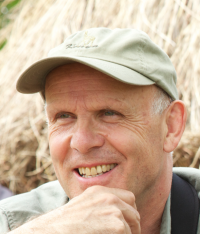The Evolution of Human Nutrition
Biographical Sketches: Co-Chairs
University College London
Leslie Aiello is Professor Emerita, University College London and President Emerita of the Wenner-Gren Foundation for Anthropological Research. Her academic interests focus on the evolution of human adaptation as well as on the broader issues of evolutionary theory, life history, energetics, and the evolution of the brain and cognition. She has degrees from the University of California Los Angeles and from the University of London. She spent the majority of her academic career at University College London (1976-2005) and returned to the US to head the Wenner-Gren Foundation for Anthropological Research (2005-2017). She was president of The American Association of Biological Anthropologists (AABA) from 2018-2019 and currently serves on the Board of the Smithsonian’s National Museum of Natural History. Throughout her career she has been active with the media in the public dissemination of science and has served as consultant and advisor to a variety of international anthropological institutions and initiatives.
UC San Diego
Margaret Schoeninger is Distinguished Professor Emerita of Anthropology at UC San Diego, a Research Archaeologist in the Glenn Black Laboratory of Archaeology at Indiana University, and Emerita Co-Director of CARTA. She has done fieldwork in North America, Mexico, Pakistan, India, Kenya, and Tanzania as well as laboratory research on carbon, nitrogen, and oxygen stable isotope ratio analysis in biological tissues and food component analysis of traditional foods. Her major interest is in the evolution of human diet particularly as it informs our understanding of the appearance and evolution of the human lineage.
Biographical Sketches: Speakers
Loughborough University
Barry Bogin is a Professor Emeritus of Biological Anthropology of the School of Sport, Exercise & Health Sciences, Loughborough University, UK and William E Stirton Professor Emeritus of Anthropology of the University of Michigan-Dearborn. He received his Ph.D. in anthropology from Temple University in 1977. Bogin has expertise in human physical growth and development, nutritional ecology, evolutionary biology, Maya people, and human adaptation. He has authored more than 240 books, articles, book chapters, and popular essays. These include the books Patterns of Human Growth, 3rd edition (Cambridge University Press, 2021).
Further reading:
Barry Bogin, Jared Bragg, Christoper Kuzawa (2014) Humans are not cooperative breeders but practice biocultural reproduction. Annals of Human Biology, 41(4):368-80.
Barry Bogin, Carlos Varea, Michael Hermanussen, Christiane Scheffler (2018) Human life course biology: A Centennial Perspective of scholarship on the human pattern of physical growth and its place in human biocultural evolution. American Journal of Physical Anthropology, 165:834–854.
George Washington University
Alison S. Brooks is a professor of anthropology and international affairs at the George Washington University and a founding member of the Center for the Advanced Study of Hominid Paleobiology (CASHP). In addition, she is a research associate in the Human Origins Program at the National Museum of Natural History, Smithsonian Institution, a visiting researcher at Harvard University and a fellow of the American Academy of Arts and Sciences. She received her PhD from Harvard in 1979 for research on the initial Upper Paleolithic occupation of Western Europe. As the origins of these first “anatomically modern” Europeans clearly lay outside that continent, her fieldwork has explored the Pleistocene prehistory of multiple African countries. These include Botswana, where she studied the lifeways of San hunter-gatherers and documented their long-term history, Zimbabwe, D.R. Congo, Ethiopia, Kenya, Tanzania and South Africa. Her African work focuses on defining and dating the Middle Stone Age of Africa and understanding both cultural diversification within Africa and the cognitive and behavioral transformations that led to the expansion of our species throughout the world. She was instrumental in developing chronometric techniques for sites that are too old for radiocarbon, and in documenting the oldest evidence for fishing technologies and projectile weapons, as well as early evidence for the expansion of social networks and symbolic behavior, and the first evidence that starch grains were preserved in the dental calculus of fossils from Africa, the Near East and Europe, allowing us to reconstruct the plant segment of their diets. She is co-editor of The Encyclopedia of Human Evolution and Prehistory and her scholarly papers include “The Revolution That Wasn’t: A New Interpretation of the Origin of Modern Human Behavior” with Sally McBrearty in the Journal of Human Evolution (2000).
University of Nevada, Las Vegas
Alyssa Crittenden is a human behavioral ecologist and nutritional anthropologist who has worked with the Hadza hunter-gatherers of Tanzania since 2004. Her primary research interest is the study of the evolution of human behaviors as a function of socioecological context. The majority of her work explores the intersection of diet, life history, and sociality during human evolution. Her research foci include: evolution of the human diet; evolution of childhood; children’s foraging and food sharing; nutritional and behavioral correlates of cooperative breeding; life history theory. She is currently Vice Provost for Graduate Education; Dean of the Graduate College; and Professor of Anthropology at University of Nevada, Las Vegas and serves on the CARTA External Advisory Board.
UC San Diego
Pascal Gagneux is CARTA's Executive Co-Director, a Professor of Pathology and Anthropology, and the Department Chair of Anthropology at UC San Diego. He is interested in the evolutionary mechanisms responsible for generating and maintaining primate molecular diversity. The Gagneux laboratory studies cell-surface molecules in closely related primates species. His focus is on glycans, the oligosaccharides attached to glycolipids and glycoproteins of the surfaces of every cell and also secreted into the extra-cellular matrix. Gagneux's laboratory is exploring the roles of molecular diversity in protecting populations from pathogens as well as potential consequences for reproductive compatibility. Dr. Gagneux’s interest is in how glycan evolution is shaped by constraints from endogenous biochemistry and exogenous, pathogen-mediated natural selection, but could also have consequences for sexual selection. Dr. Gagneux has studied the behavioral ecology of wild chimpanzees in the Taï Forest, Ivory Coast, population genetics of West African chimpanzees, and differences in sialic acid biology between humans and great apes with special consideration of their differing pathogen regimes. In 2011, while Associate Director of CARTA, Dr. Gagneux helped to establish a graduate specialization in Anthropogeny at UC San Diego. This wholly unique graduate specialization is offered through eight participating graduate programs in the social and natural sciences at UC San Diego.
Ohio State University
Clark Spencer Larsen is Distinguished University Professor at The Ohio State University. He received his Ph.D. in biological anthropology from the University of Michigan. Dr. Larsen is a member of the National Academy of Sciences and Fellow of the American Association for the Advancement of Science. He is a former president of the American Association of Physical Anthropologists and editor-in-chief of the American Journal of Physical Anthropology. Larsen is an authority on bioarchaeology, the study of human remains from archaeological settings. His research focuses on biocultural adaptation during the last 10,000 years of human evolution, with particular emphasis on the history of health and lifestyle. He is co-director of the Global History of Health Project, an international collaboration involving the study of ancient skeletons from all continents in order to track health changes during the Holocene. He also co-directs the recovery and study of human remains from Catalhoyuk, Turkey, one of the earliest farming communities in the world. He is the author of numerous scientific articles and has authored or edited 30 books and monographs, including Bioarchaeology: Interpreting Behavior from the Human Skeleton (Cambridge University Press), Skeletons in Our Closet: Revealing Our Past through Bioarchaeology (Princeton University Press), and a leading textbook, Our Origins: Discovering Physical Anthropology (W.W. Norton). He is the founding editor of the book series, Bioarchaeological Interpretations of the Human Past: Local, Regional, and Global Perspectives (University Press of Florida).
University of Colorado, Boulder
Steven Leigh is Professor of Anthropology at the University of Colorado, Boulder. He is also a Faculty Affiliate at the Institute of Genomic Biology, University of Illinois, Urbana-Champaign. His research interests focus on primate growth and development, and human brain growth and evolution. More recent research investigates the evolution of the human microbiome in relation to diet and brain evolution.
University of Arizona
Mary C. Stiner is a Regents' Professor of Anthropology in the School of Anthropology, at the University of Arizona, Tucson. She is also an associate curator of zooarchaeology at the Arizona State Museum. She conducts archaeological research on human ancestors, paleoeconomics, and social evolution. She is particularly interested in the ever-changing relationship between human societies and Eurasian ecosystems, and she has conducted archaeological fieldwork in Italy, Israel, Turkey, Portugal, Greece, and France. She publishes on a wide range of periods and topics in Paleolithic archaeology, hunter-gatherer ecology, predator co-evolution, the transition from foraging to early village societies, and the early evolution of art as media for visual communication. Her technical specialties include zooarchaeology and taphonomy.
University of Arkansas
Peter Ungar received his PhD in anthropological sciences from Stony Brook University and taught gross anatomy in the medical schools at Johns Hopkins and Duke before moving to the University of Arkansas, where he now serves as a distinguished professor of Anthropology and director of the Environmental Dynamics Program at Arkansas.
He is known primarily for his work on the role of diet in human evolution. He has spent thousands of hours observing wild apes and other primates in the rainforest of Latin America and Southeast Asia, studied fossils from tyrannosaurids to Neandertals, developed new techniques for using surface analysis technologies to tease information about diet from tooth shape and patterns of use wear, analyzed oral health in the Hadza people of Tanzania, and is currently work on new proxies for impacts of climate change in mammals of the Arctic.
Ungar has written or coauthored more than 200 scientific papers on ecology and evolution for books and journals including Science, Nature, Proceedings of the National Academy of Sciences, and Philosophical Transactions of the Royal Society. These have focused on food choices and feeding in living primates, and the role of diet in the evolution of human ancestors and other fossil species. He has also edited or co-edited three volumes on the evolution of human diet, and his recent academic book, Mammal Teeth: Origin, Evolution, and Diversity (Johns Hopkins University Press), won the 2010 PROSE Award from the Association of American Publishers for best book in the biological sciences. His books Teeth: A Short Introduction (Oxford University Press) and Evolution's Bite (Princeton University Press) are available online and in bookstores. Ungar has given dozens of invited talks and keynote addresses at venues including the Smithsonian Institution, the American Museum of Natural History, and the Royal Society in London. He is a member of the American Academy of Arts and Sciences, and a fellow of the American Association for the Advancement of Science and the Johns Hopkins Society of Scholars. And his work has been featured in hundreds of electronic, print, and broadcast media outlets, including his recent appearances in documentaries on the Discovery Channel, BBC Television, and the Science Channel.
UC San Diego School of Medicine
Ajit Varki is a Distinguished Professor of Medicine and Cellular & Molecular Medicine, Emeritus Co-Director of CARTA, Emeritus Co-Director of the Glycobiology Research and Training Center at UC San Diego, and Adjunct Professor at the Salk Institute. He received basic training in physiology, medicine, biology, and biochemistry at the Christian Medical College (CMC), Vellore, The University of Nebraska, and Washington University in St. Louis. He also has formal training and board certification in internal medicine, hematology, and oncology. Varki is the executive editor of Essentials of Glycobiology (Cold Spring Harbor Press, 4th Edition, 2022) and is recipient of a MERIT award from the NIH, and an American Cancer Society Faculty Research Award. Honorific elections include the American Academy of Arts and Sciences, the National Academy of Medicine, the American Society for Clinical Investigation, and the Association of American Physicians. He is also recipient of the three highest honors in his field, the Karl Meyer Award of the Society for Glycobiology, the International Glycoconjugate Organization Award and the Rosalind Kornfeld Award for Lifetime Achievement in Glycobiology. He is recognized for creating the first major open access research journal (J. Clin. Invest., 1996) as well as the first major open access textbook (Essentials of Glycobiology, 2009). He was honored with the Old Cottonian of Eminence Award at the 150th Anniversary of Bishop Cotton Boys School, Bangalore, India, (2015) as well as a Distinguished Faculty Medal and Oration at his medical school alma mater, CMC, Vellore. Significant past appointments include: Co-Head, UC San Diego Division of Hematology-Oncology; President of the Society for Glycobiology; Editor-in-Chief of the Journal of Clinical Investigation; Interim Director of the UC San Diego Cancer Center, President of the American Society for Clinical Investigation, and UC San Diego Associate Dean for Physician-Scientist Training. Varki's research interests are focused on a family of cell surface sugars called sialic acids, and their roles in biology, evolution and disease. Currently, active projects are relevant to the roles of sialic acids in microbial infectivity, the regulation of the immune response, the progression and spread of tumors, aging, and unique aspects of human evolution. His group is particularly intrigued to find multiple interrelated differences in sialic acid biology between humans and our closest evolutionary cousins, the "great apes." These differences are a signature of the events that occurred during the last few million years of human evolution, and appear to be relevant to understanding several aspects of the current human condition, both in health and disease. Varki’s book, Denial (Twelve, Hachette Books, 2013), explores a novel "Mind Over Reality Transition” (MORT) theory that denying reality and personal mortality was a key step in allowing the emergence of a full theory of mind, and in the origin of our species.
Harvard University
Richard Wrangham is the Ruth Moore Professor of Biological Anthropology at Harvard University, where he has taught since 1989. His major interests are chimpanzee and human evolutionary ecology, the evolutionary dynamics of violence, and ape conservation. He received his Ph.D. in Zoology from Cambridge University in 1975, was a Research Fellow at King’s College (Cambridge) from 1977 to 1980, and taught at the Department of Anthropology at the University of Michigan (Ann Arbor) from 1981-1989. Since 1987 he has studied wild chimpanzee behavior in Kibale National Park, Uganda. His most recent book is Catching Fire: How Cooking Made Us Human (Basic Books, 2009)
